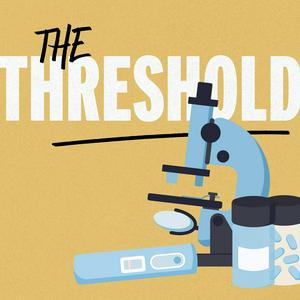In our season finale of The Threshold, we delve into what it will take to end neglected tropical diseases (NTDs), which impact about 1.5 billion people. The World Health Organization considers 21 diseases to be NTDs, a classification that marks a disease as underfunded and prioritized relative to its burden. What is encouraging is that a growing number of neglected tropical diseases are closer than ever to being eliminated.
Our episode begins with the personal story of Rehema, whose account was produced by Sharon Kiburi. Rehema’s path towards a diagnosis demonstrates much of what is challenging with neglected tropical diseases. NTDs are sometimes called “last mile” diseases because ending them is largely a matter of access: getting the right treatments and services to the most rural, disadvantaged populations on Earth.
Then, host Henry Bonsu speaks with Dr. Ngozi Erondu, the technical director of GLIDE, the Global Institute for Disease Elimination. She describes which diseases she thinks are most likely to be eliminated in the near future.
Finally, we interview Dr. Rebecca “Tshidi” Moeti, the recently retired former WHO regional director of Africa. She is a major champion of ending NTDs, including launching the Expanded Special Project for Elimination of Neglected Tropical Diseases. In this conversation, she also reflects about her decades-long career and what she hopes for the future of global health.
Thank you for listening to our first season! We would love to hear your thoughts as well as suggestions for new episodes. Feel free to email us at
[email protected].
The Threshold is made possible in part through funding from the Gates Foundation. Special thanks this episode to Naima Omondi, a family planning practitioner who got us in contact with Rehema.
Guests and organizations:
Dr. Rebecca “Tshidi” Moeti, former WHO regional director of Africa
Dr. Ngozi Erondu, the technical director of GLIDE, the Global Institute for Disease Elimination


